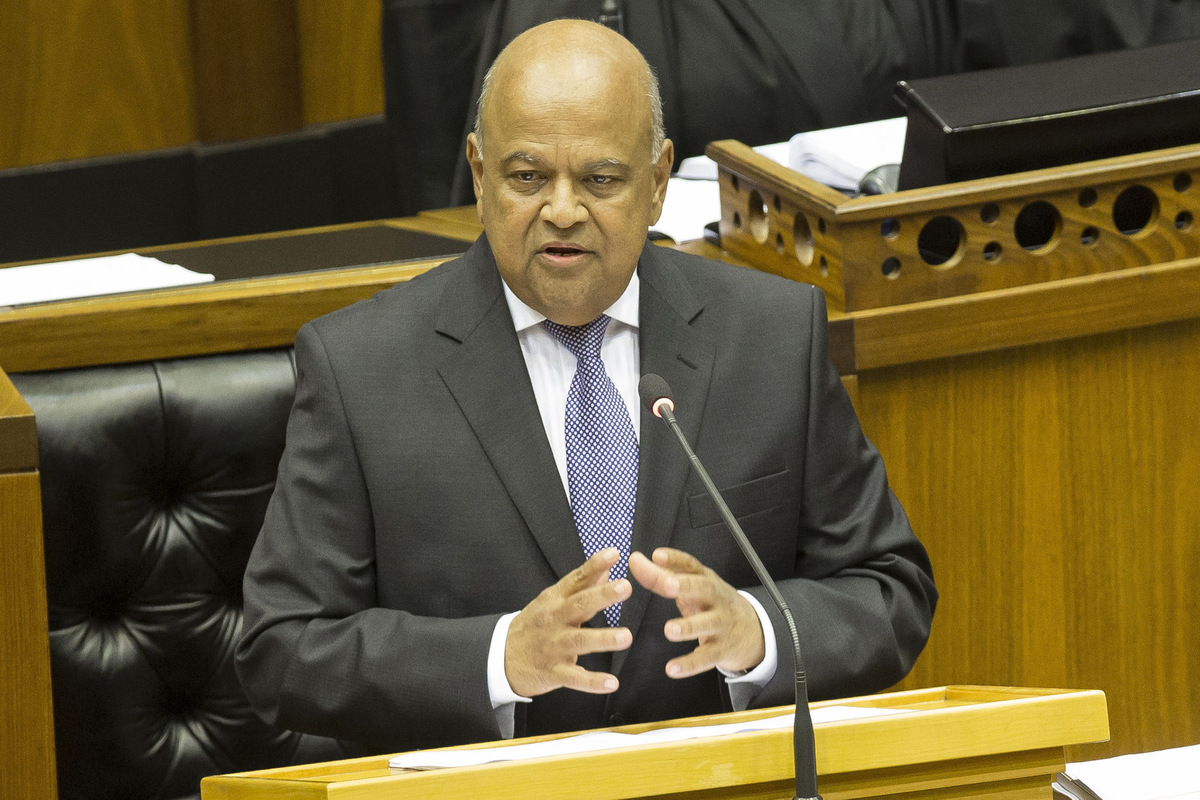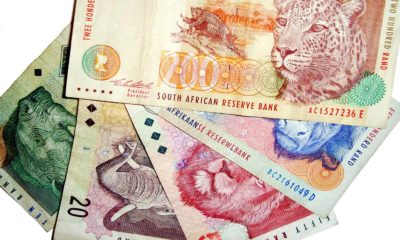South Africa’s finance minister said on Friday he would take legal action to protect himself from what he called attempts to discredit him and the integrity of the Treasury.
The rand fell after Pravin Gordhan’s statement and another from President Jacob Zuma expressing his confidence in Gordhan, whom he appointed in December after a previous change of finance minister triggered a plunge in the South African currency.
Gordhan’s statement followed a newspaper report which quoted sources as saying he had threatened to resign after receiving a letter from the elite Hawks police unit questioning his knowledge of a suspected rogue unit at the revenue service.
Confirming he had received a letter with those contents, Gordhan said in a statement it was “an attempt by some individuals who have no interest in South Africa, its future, its economic prospects and the welfare of its people”.
“I can categorically state that the Hawks have no reason to ‘investigate’ me,” said Gordhan, a former head of the South African Revenue Service (SARS), who won widespread respect during an earlier term as finance minister from 2009 to 2014.
In a separate statement, Zuma said he had full confidence in Gordhan and dismissed “rumors and gossip which insinuate some conspiracy against minister Gordhan”.
The Business Day newspaper said on Friday that Gordhan had threatened to resign from the cabinet last weekend, ahead of his budget speech on Wednesday, unless current SARS commissioner Tom Moyane was removed from his role.
Quoting sources, it said the ultimatum to Zuma reflected a serious deterioration in Gordhan’s relationship with Moyane, who remains in the job. The two men have clashed amid a probe into a unit which allegedly operated unlawfully in the department under Gordhan’s watch during his previous stint as finance minister.
At a function on Friday, Gordhan criticized Moyane for defying instructions to halt a restructuring exercise at SARS, underlining rising tensions between the finance ministry and the tax collection agency.
“I think it is absolutely unacceptable for the head of a government entity to be defiant of the executive authority that is responsible for that entity,” Gordhan said at the event.
“WHAT IS THERE TO HIDE?”
“And if there is such defiance, one must ask the question, what is there to hide?”
Moyane was not immediately available to comment.
The tensions surrounding the finance ministry come at a time when Africa’s most industrialized economy is stalling, with growth now seen at 0.9 percent in 2016, down from the 1.7 percent predicted in October.
South African business leaders urged Zuma to urgently deal with the public spat between Gordhan and Moyane.
“The president must resolve this issue,” Cas Coovadia, spokesman for a group of chief executives who have been interacting recently with Zuma and Gordhan on ways to improve economic growth, told Reuters.
“It would be an absolute tragedy for our country if this results in any uncertainty around minister Gordhan’s ongoing position as minister of finance.”
Zuma appointed Gordhan in December to calm markets after the rand plunged nearly 10 percent following his replacement of finance minister Nhlanhla Nene with a junior politician.
The rand extended losses against the dollar after the statements by Zuma and Gordhan, falling nearly 4 percent to 16.1950 per dollar in volatile trade that set it on track for the biggest daily loss since 2011. The rand was the worst performer among emerging market currencies. Bond yields soared.
“Another change in finance minister would be a disaster for investor confidence and could underpin the prospect of ratings downgrade to junk status,” said Rajiev Rajkumar, EMEA analyst at London-based research house 4Cast.
On Wednesday, Gordhan presented an austerity budget aimed at preserving South Africa’s credit rating and which included spending cuts, civil service job freezes and moderate tax hikes on property sales, fuel, alcohol and capital gains.
Ratings agencies have said they might cut South African debt to “junk” after Zuma’s two changes of finance minister in less than a week in December raised questions about Pretoria’s commitment to prudent fiscal policy.
“I understand that it’s creating a little bit of angst and people are little concerned and worried, but if the markets are concerned about Gordhan stepping down I think that’s completely overplayed,” said George Glynos, managing director at ETM Analytics.
Reuter


 Forex2 weeks ago
Forex2 weeks ago


 Naira2 weeks ago
Naira2 weeks ago
 Naira4 weeks ago
Naira4 weeks ago
 Billionaire Watch1 week ago
Billionaire Watch1 week ago
 Company News4 weeks ago
Company News4 weeks ago




 Naira2 weeks ago
Naira2 weeks ago




 Naira1 week ago
Naira1 week ago




 Naira4 weeks ago
Naira4 weeks ago



















